| IN A NUTSHELL |
|
In the ever-evolving world of electric vehicles (EVs), milestones are continually being shattered as automakers strive to push the boundaries of range and efficiency. The latest record to capture global attention belongs to the Polestar 3 SUV, which has set a new Guinness World Record by traveling 581.3 miles on a single charge. This remarkable achievement not only highlights the advances in EV technology but also underscores the competitive spirit among manufacturers. The Polestar team, consisting of Sam Clarke, Kevin Booker, and Richard Parker, embarked on this journey in England, showcasing the capabilities of their vehicle under real-world conditions.
Breaking New Ground in EV Range
The Polestar 3’s recent success is a testament to the significant strides being made in EV technology. Achieving a record-breaking 581.3 miles on a single charge, the vehicle demonstrates that long-distance travel in an electric SUV is not just a future possibility but a current reality. The journey was meticulously planned, with the team maintaining an average speed of 25 mph to optimize the vehicle’s range.
The drive took place on primarily flat A and B roads, with occasional highway stretches, all in mixed weather conditions. These factors combined to create a challenging yet authentic test of the vehicle’s capabilities. The Polestar 3’s success on this route not only sets a new benchmark for EV performance but also challenges the preconception that electric vehicles are limited to short trips. This achievement follows recent records set by other EVs, such as the Lucid Air Grand Touring and Chevy Silverado EV pickup, each showcasing unique strengths in the burgeoning EV market.
Technical Specifications and Innovations
The Polestar 3 employed for this record-breaking journey was a stock, long-range, single-motor version. It is equipped with a 107-kWh battery and a 295-horsepower motor driving the rear axle. These specifications highlight the vehicle’s robust engineering and advanced technology that contribute to its impressive range.
Introduced in Europe in mid-2024, the Polestar 3 is slated for release in the U.S. and other international markets later that year. This model shares a 111-kWh battery with its dual-motor counterpart and boasts a WLTP-rated range of 435 miles. Interestingly, during the record drive, the vehicle exceeded this rating and continued to travel an additional 8 miles even after the display indicated a depleted battery. This real-world performance, combined with strategic battery management and aerodynamic design, underscores Polestar’s commitment to innovation in the EV sector.
“680 Horsepower in 4 Seconds”: Volvo ES90 Destroys Tesla With 435-Mile Range and Lightning Charging
Efficiency and Real-World Performance
One of the most striking aspects of the Polestar 3’s journey is its energy efficiency. The vehicle achieved an impressive 19.5 kWh per 100 miles, translating to 5.13 miles per kWh. This performance not only surpasses some of its competitors in the luxury SUV category but also challenges the efficiency of other high-profile models like the Lucid Air Pure.
This level of efficiency is attributed to a combination of advanced battery technology, aerodynamic design, and smart thermal management systems. Built on the same platform as Volvo’s upcoming premium SUV, the Polestar 3 benefits from a collaborative development strategy that leverages the strengths of both brands. This partnership has resulted in a vehicle that not only meets but exceeds expectations for what an electric SUV can achieve on public roads.
The Implications of the Record
The Polestar 3’s record-breaking performance is more than just a technical achievement; it represents a significant shift in the perception of electric vehicles. Historically, EVs have been viewed as limited in range and practicality, particularly for long-distance travel. However, the Polestar 3’s success challenges these notions and paves the way for broader acceptance of electric SUVs as viable options for a wide range of consumers.
While other vehicles like the Lucid Air and Chevy Silverado have made headlines with their respective feats, the Polestar 3’s accomplishment is unique due to its classification and real-world application. As noted by Polestar UK’s Managing Director, Matt Galvin, the ability of a large premium SUV to exceed expectations in this manner is groundbreaking.
“For a large premium SUV to go way beyond a London to Edinburgh distance is truly impressive,” Galvin stated, emphasizing the vehicle’s capabilities.
This achievement not only sets a new standard but also raises important questions about the future of electric vehicles and their role in sustainable transportation.
As the automotive industry continues to evolve, the achievements of vehicles like the Polestar 3 highlight the rapid advancements in electric vehicle technology. The record-breaking performance of this SUV demonstrates that long-range, efficient electric travel is not only feasible but increasingly accessible. With these developments, the question remains: how will these advancements influence consumer preferences and the broader automotive landscape in the coming years?
Did you like it? 4.7/5 (27)


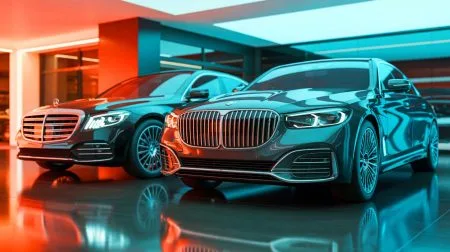

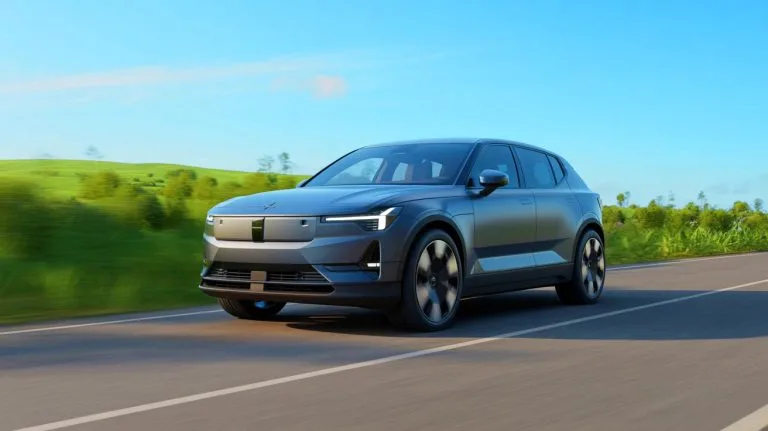
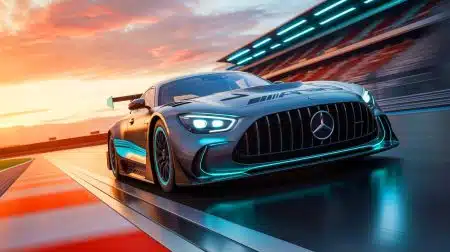
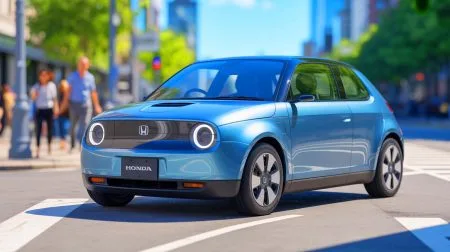
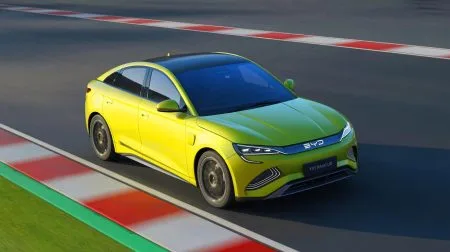
Wow, 581.3 miles on a single charge? That’s insane! 🚗💨
Wow, 581.3 miles on a single charge? That’s incredible! 🚗💨
How did they manage to average only 25 mph for the whole trip?
Isn’t 25 mph a bit slow? How practical is this for everyday use?
Does anyone know if this Polestar 3 model is available in the US yet?
I doubt most people will drive 25 mph to achieve this kind of range in real life. 🤔
Thank you for sharing this! It’s great to see EVs breaking records.
Great article! Thanks for sharing these exciting advancements in EV technology.
Is this a game-changer for electric vehicles or just a publicity stunt?
Is the Polestar 3 available worldwide yet?
Can someone explain how a 107-kWh battery can go this far? Seems unreal!
Interesting, but I think I’ll stick to my gas-powered SUV for now. 🚙
Sounds impressive, but how does it perform in colder climates? ❄️
Could this mean the end of range anxiety for electric car owners?